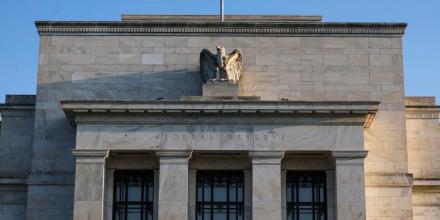What should we anticipate in the upcoming Federal Reserve meeting?
01.11.2023 posted by Admin

The Federal Reserve is widely expected to announce on Wednesday, following its monetary policy meeting, that it will keep interest rates unchanged. These rates are currently at their highest level in 22 years, and this would mark the second consecutive meeting where the Fed maintains the status quo.
However, it's important to note that this doesn't signify an end to the possibility of rate hikes. Federal Reserve Chair Jerome Powell has made it clear that the central bank wants to keep the option of raising rates open, should data indicate that inflation remains a concern.
Powell stated last month in New York, "Given the uncertainties and risks, and how far we have come, the committee is proceeding carefully. We will make decisions about the extent of additional policy firming and how long policy will remain restrictive based on the totality of the incoming data, the evolving outlook, and the balance of risks."
Another rate hike could potentially occur during the Fed's December 12-13 meeting, and it might be the last one in this particular cycle. In their economic projections released in September, Fed officials penciled in one more rate hike for this year. However, the central bank could choose not to implement that final hike if upcoming data shows that inflation is continuing to decrease, despite a robustly expanding economy and a tight job market.
Nonetheless, there are Fed officials who advocate for a more aggressive approach to combating inflation, believing that there's still room to raise rates. Fed Governor Michelle Bowman, for instance, stated last month in Morocco, "Inflation remains well above the [committee's] 2% target. Domestic spending has continued at a strong pace, and the labor market remains tight. This suggests that the policy rate may need to rise further and stay restrictive for some time to return inflation to the FOMC's goal."
The Fed's preferred measure of inflation, the Personal Consumption Expenditures price index, only slightly cooled in September. The core index, which excludes food and energy prices, increased by 3.7% over the 12 months ending in September, down from the 3.8% rate observed in August.
As of now, the Federal Reserve seems to have a chance to control inflation without causing a sharp increase in unemployment, a scenario known as a "soft landing."
However, the central bank is currently balancing the risk of inflation potentially accelerating again against the risk that its actions could harm the economy unnecessarily.
However, it's important to note that this doesn't signify an end to the possibility of rate hikes. Federal Reserve Chair Jerome Powell has made it clear that the central bank wants to keep the option of raising rates open, should data indicate that inflation remains a concern.
Powell stated last month in New York, "Given the uncertainties and risks, and how far we have come, the committee is proceeding carefully. We will make decisions about the extent of additional policy firming and how long policy will remain restrictive based on the totality of the incoming data, the evolving outlook, and the balance of risks."
Another rate hike could potentially occur during the Fed's December 12-13 meeting, and it might be the last one in this particular cycle. In their economic projections released in September, Fed officials penciled in one more rate hike for this year. However, the central bank could choose not to implement that final hike if upcoming data shows that inflation is continuing to decrease, despite a robustly expanding economy and a tight job market.
Nonetheless, there are Fed officials who advocate for a more aggressive approach to combating inflation, believing that there's still room to raise rates. Fed Governor Michelle Bowman, for instance, stated last month in Morocco, "Inflation remains well above the [committee's] 2% target. Domestic spending has continued at a strong pace, and the labor market remains tight. This suggests that the policy rate may need to rise further and stay restrictive for some time to return inflation to the FOMC's goal."
The Fed's preferred measure of inflation, the Personal Consumption Expenditures price index, only slightly cooled in September. The core index, which excludes food and energy prices, increased by 3.7% over the 12 months ending in September, down from the 3.8% rate observed in August.
As of now, the Federal Reserve seems to have a chance to control inflation without causing a sharp increase in unemployment, a scenario known as a "soft landing."
However, the central bank is currently balancing the risk of inflation potentially accelerating again against the risk that its actions could harm the economy unnecessarily.